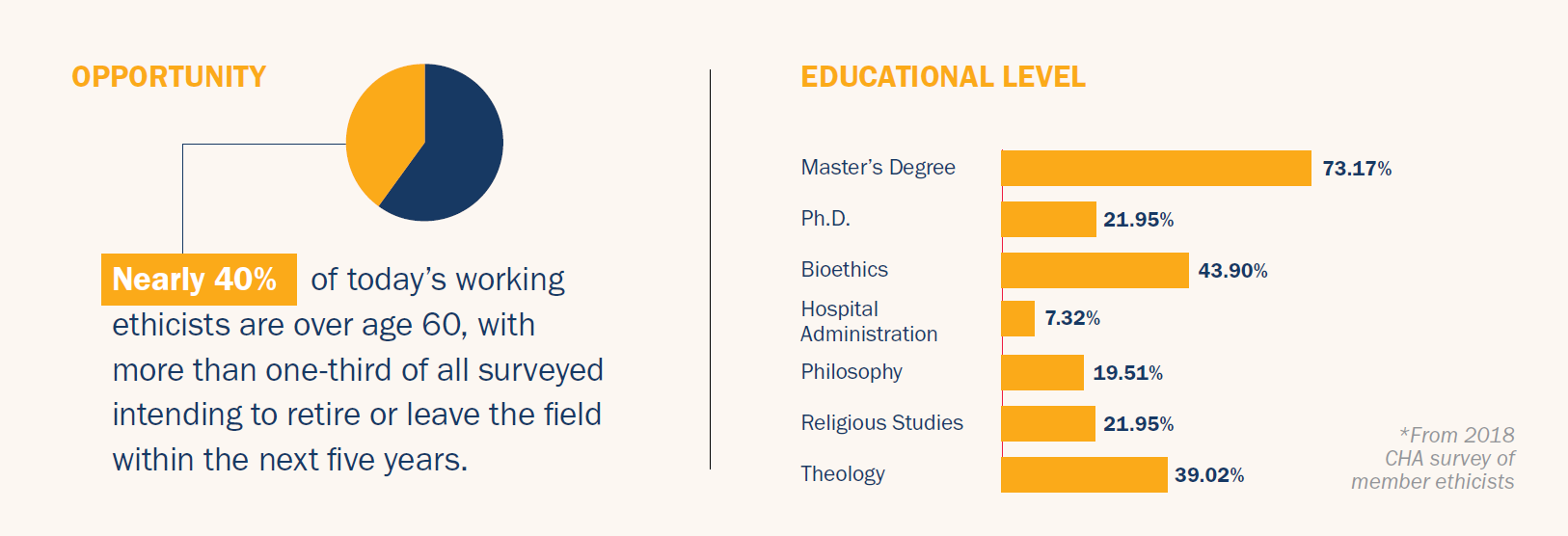
ROLE
Ethicists provide guidance, education, consultation and assistance in navigating the complex and sometimes turbulent waters of health care. Out of a love for helping people and with respect for the moral and ethical teachings of the Gospel and the Ethical and Religious Directives for Catholic Health Care Services, ethicists facilitate discernment and provide guidance for making just and moral decisions when answers aren't always clear.
While some ethicists work in facilities, others work in systems. General responsibilities typically include:
- Educate various audiences, including boards, senior leadership and clinical and nonclinical staff.
- Provide clinical and organizational consultations.
- Guide ethics committees and facilitate ethical discernment.
- Develop ethics-related resources and tools, especially on ethical issues of an organizational and ecclesial nature.
- Conduct leadership formation.
- Assist in policy development.
- Help author advisory and position statements.
- Research and publish in the area of health care ethics.
EDUCATION
73.17% of ethicists typically have at least a graduate-level degree, although a doctorate or the equivalent is preferred, particularly when working at the regional or system level. All candidates are expected to have a developed understanding of health care ethics and the Catholic moral tradition, including Catholic social teaching. Appropriate areas of specialization include, but are not limited to:
- Health care ethics
- Theology
- Philosophy
- Medicine
- Law
- Nursing
SKILLS AND COMPETENCIES
- Knowledge of Catholic systematic and moral theology, and other faith traditions.
- Knowledge of Catholic health care ethics, including organizational ethics and the Ethical and Religious Directives for Catholic Health Care Services.
- Ability to teach and write clearly and effectively.
- Good communication skills.
- Creative problem solving.
- Ability to develop educational programs and resources.
Becket Gremmels, Ph.D.
JP Slosar, Ph.D.
Jenna Speckart, D.Be.
